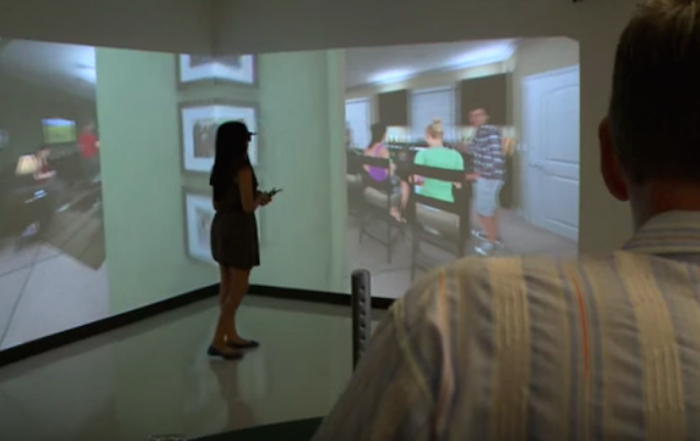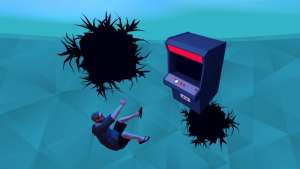From the Series

The Virtual Reality Cave is a rehabilitation programme designed for recovering drug and alcohol addicts. Researchers at the University of Houston created the immersive experience with virtual reality, role-play scenarios that aim to treat participants’ substance dependency during the early stages of the rehabilitation process.
According to recovery support organisation CRC Health, early recovery is the most difficult phase of an addict’s journey to health. Although patients have acknowledged their addiction, they are in an extremely vulnerable state, which often results in multiple relapses. One of the most critical steps at this stage is to develop new coping mechanisms, which is where The Virtual Reality Cave comes in.
The programme is a human behavioural experiment that places participants in a situation of vulnerability similar to what they may experience in the real world. A room is equipped with eight infrared cameras that track the movements of the participants as they navigate a 3D world with the use of virtual reality headsets.
In the virtual environments, participants are tempted to relapse as they are confronted with influential characters and difficult situations. Traditional treatment methods require rehabilitation patients to role-play these situations with their therapists. The heightened degree of realism produces more natural reactions from participants, which helps doctors come up with more effective coping skills for people undergoing treatment.







